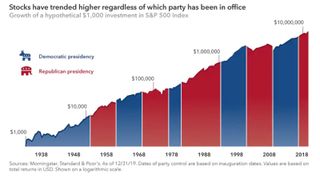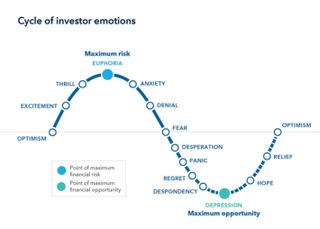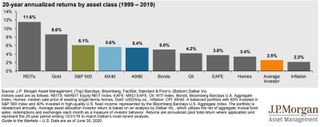
Investing during an election year comes with a special kind of risk. Your mind is on sharp alert. The very nature of politics and your nest egg can spark emotions that may drive you to make decisions in the short term that could have a negative impact on your long-term goals.
Consider taking a step back to “pause” and set aside your emotions and bias, keeping your long-term perspective in mind. Ponder the three ideas below as we move closer to the election.
1. Stop worrying about which party is going to win.
No matter who you believe to be the best fit, investors can create unneeded anxiety if they spend too much energy on the election results — and that can lead to irrational behaviors. In fact, historically speaking, elections have made very little impact over long-term investment returns. As Capital Group economist Darrell Spence says, “There are many other variables that determine economic growth and market returns and, frankly, presidents have very little influence over them.”
Sign up for Kiplinger’s Free E-Newsletters
Profit and prosper with the best of expert advice on investing, taxes, retirement, personal finance and more – straight to your e-mail.
Profit and prosper with the best of expert advice – straight to your e-mail.
The graphic below shows that over the years, staying invested and avoiding the temptation to let emotions drive financial decisions has delivered the best overall outcome for investment portfolios. Keep in mind, past performance results are not indicative of future performance, thus, market consequences exist regardless of your favorite party or candidate to your overall performance and returns in the long run.

2. Don’t be surprised to see volatility increasing as we near the election: Expect it.
When volatility happens and it is your personal retirement account or your children’s college tuition fund at stake, it may be very difficult to sit and watch. Taking action may make you feel better during times of crisis, but in actuality sometimes the best advice is to do nothing.
Most people are not analyzing statistical algorithms and charts to determine what decisions they should make. In the real world, our emotions influence our decision-making process. We, as investors, should expect volatility in the markets, as it is a normal characteristic to long-term investing.
The critical takeaway is this: Stay the course. Expect to see rough patches, headlines and bad news — there will always be a flavor of the day when it comes to “financial noise.” Behavioral finance research shows that the average investor tends to buy high and sell low as a result of being pulled into the financial noise and making emotionally driven bad decisions. Capital Group created the graphic below “Cycle of investor emotions,” can you relate?

3. Do not be tempted to time the market during election season. It’s time in the market, not timing the market!
Peter Lynch, former fund manager with Fidelity Investments, is arguably one the most successful investors of all time. Peter is famously quoted as saying “Far more money has been lost by investors trying to anticipate corrections, than lost in the correction themselves.” Between 1977 and 1990, Lynch’s fund averaged an approximate 29% annual rate of return, which more than doubled the S&P 500 index, making it the best-performing fund in the world during that time.
Given this remarkable track record, you might be shocked to learned that the average investor in the fund actually lost money! What? How! The most obvious answer is that withdrawals from retail investor accounts increase during uncertain times, and as the markets recover most believe that it is a good time to start buying back those shares which were sold. In essence, average investors are selling low and buying high instead of just staying the course.
JP Morgan’s “Diversification and the average investor” chart below may beg the question of staying the course. As you can see, the average investor’s rate of return is barely beating inflation…

In closing, expect a sensational election season, along with volatility and the temptation to try to time the markets. We suggest you meet with your financial adviser to review your asset allocation, investment risks, and to specifically stress test your portfolio against your lifestyle goals and desires.
We welcome you to visit our website (www.mycgcapital.com) to start a conversation. Regardless of your investment strategy, remain grounded with clarity and confidence that this too shall pass.




